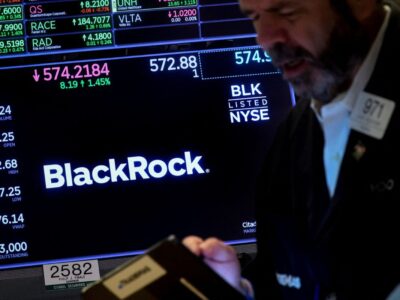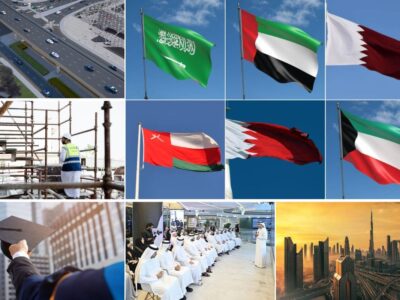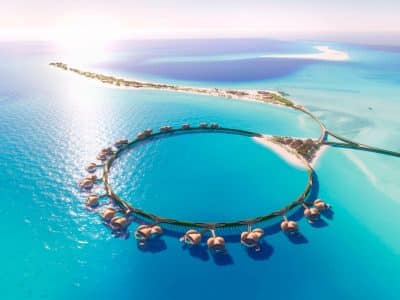Iran’s hydrocarbon industry is the lifeblood of its economy, but recent political disruption has put the country back a step in its bid to attract badly-needed Western investment.
As the world watched chaos unfold a month ago on the streets of Tehran when thousands marched in protest at the disputed presidential elections, the sacking of the deputy oil minister went virtually unnoticed. Akbar Torkan, a prominent, post-revolution political figure and a staunch ally of the former president Hashemi Rafsanjani, who has been vocal critic of Iran’s incumbent leader Mahmoud Ahmadinejad since losing to him in the 2005 elections, was the victim of a political sacking.
Evidence pointed to the fact that Torkan’s sudden removal, as tensions ran high after the bitterly contested election result, was because he had ties with opposition. More acutely, it showed that the political upheaval had spread into Iran’s energy industry.
The post-election violence has come at a bad time for Iran’s oil and gas sector, which desperately needs to attract investment from Western players if it is to unlock the potential of its vast reserves.
Global oil companies have always been wary of investing in Iran, but the recent unrest has renewed their fears.
‘It’s definitely a setback for Iran’s oil aspirations,” says Bobby Sarkar, analyst at Dubai investment bank Al Mal Capital. “It [the election troubles] hinders or lowers Western interest in Iran. Investors would be hesitant about committing capital given there is so much uncertainty going on there.”
“The political risk has increased. You’ve got to wonder how committed and willing these NOCs [national oil companies] are going to be, in making one, two, three billion dollar investments there, when the system has been rocked in recent weeks,” agrees Raja Kiwan, a Dubai-based oil analyst at energy consultant PFC Energy.
Indeed, there are already signs that the election unrest has taken its toll. At the end of last month, Austrian gas group OMV said it may postpone plans to invest in phase 12 of the massive South Pars offshore gas field citing political concerns.
Currently, there is no Western company directly involved with oil exploration and production in Iran. The most recent deal was in the 1990s, when Shell was involved, a period when there was relative political stability. In the years since, US sanctions against Iran over its refusal to halt its nuclear programme have driven away the few Western firms that were involved in physical exploration, or had any major investment.On the gas side, a number of Western firms have helped develop various stages of South Pars: France’s Total has helped bring phases two and three onstream, and Italy’s Eni developed phases six to eight. But, as in the case of OMV, even these European firms are now being lent on to sever ties with Iran.
“The biggest element here is Iran’s nuclear programme and pressure from the West for Iran to negotiate. In the absence of that negotiation a lot of the European companies are under pressure to withdraw from Iran,” says Mohammed Shakeel, of the Economist Intelligence Unit (EIU) in London.
Certainly, there is no question over the West’s desire to have access to Iran’s hugely lucrative energy market. The country is the second biggest holder of oil with 10.9 percent of the world’s reserves, according to data compiled by British energy giant BP. Currently it produces around four million barrels a day and is the fifth largest exporter.
The country’s South Pars gas field is potentially the largest in the world and, with more investment, analysts say Iran could become the biggest exporter of LNG (liquefied natural gas) ahead of Gulf state Qatar.
Iran has always been a bittersweet pill for Western oil and gas firms. While all too aware of the potential, the commercial terms are often unfavourable. Any deals are done on buy-back contracts, where a company has to hand back an oil or gas field to the Iranian government — the industry was nationalised in the 1950s — after seven to 10 years, a short period for any company to realise big returns from its investment.
“The terms in Iran have never been that attractive. They do buy- back contracts and it caps the upside of what a company can generate and it is a limited period of time until they have to hand over the field,” explains Kiwan at PFC.
“You spend the first couple of years with a huge amount of capital expenditure and then you only recover your costs plus an agreed margin, and that only lasts a certain amount of time,” he adds.
Undoubtedly, the key for Iran in reaping the rewards of its oil and gas lies in the West. The country knows this, but reaching out to Western majors is a politically-loaded move, especially in the current climate when diplomatic relations are cool.
Shakeel at the EIU argues that, far from putting Iran in a quandary, this pressure has encouraged them to look east, to Russia, China and even Malaysia; to firms that are well known for lacking the expertise and technological know-how that Iran so desperately needs.“Iranians are desperate for Western companies to develop their oil and gas sector,” he notes. “The current Iranian government is very anti-privatisation which, by extension, means they are very anti-foreign investment.
“Any foreign investment that comes with any political dimension to it, which is normally the case from the Western point of view, Iran is less inclined to accept,” he continues. “By extension if we move East, the Russians, the Chinese and the South East Asian firms in Malaysia and India, they don’t come attached with any political condition so there is a lot more accessibility for those companies.”
Six weeks ago Tehran handed a $4.7bn contract to the China National Petroleum Corporation (CNPC) to develop phase 11 of the South Pars gas field and cancelled its deal with French oil giant Total.
The West may hope this favouritism to the East is only temporary, a knee jerk reaction by Iran to the current nuclear row, but it is widely recognised that European and US oil firms have the capabilities to develop Iran’s infrastructure to make the extraction of oil and gas more efficient than it currently is.
“The technology and production has lagged behind the rest of the world,” says Al Mal’s Sarkar. “Upheaval detracts people that are already looking at investing there. Their infrastructure is outdated — they don’t have the most economically viable techniques for extracting oil and a lot of the reserves in the ground aren’t being utilised effectively.”
Kiwan says the only the way for Iran to maintain its current rate of oil production (it has a number of mature fields where decline rates are high) is to minimise the political risk, but also to extend the buy- back contracts and develop new ones.
“There are huge reserves on offer — that’s the selling point,” he explains.
It is this massive potential, though, that will ultimately ensure that Western firms stay put.
“Western companies are in no mood to leave entirely. It’s a very political situation; if they were to pack their bags and go, Iran would probably not allow them to re-enter,” says Shakeel. “Iran will be a massively lucrative market in the future; these companies want to retain a foothold. Even if that means a single office, which in physical terms does nothing, at least it means these companies can have a presence.
“They are fully aware that if they leave the Russians and Chinese will pour in.”







